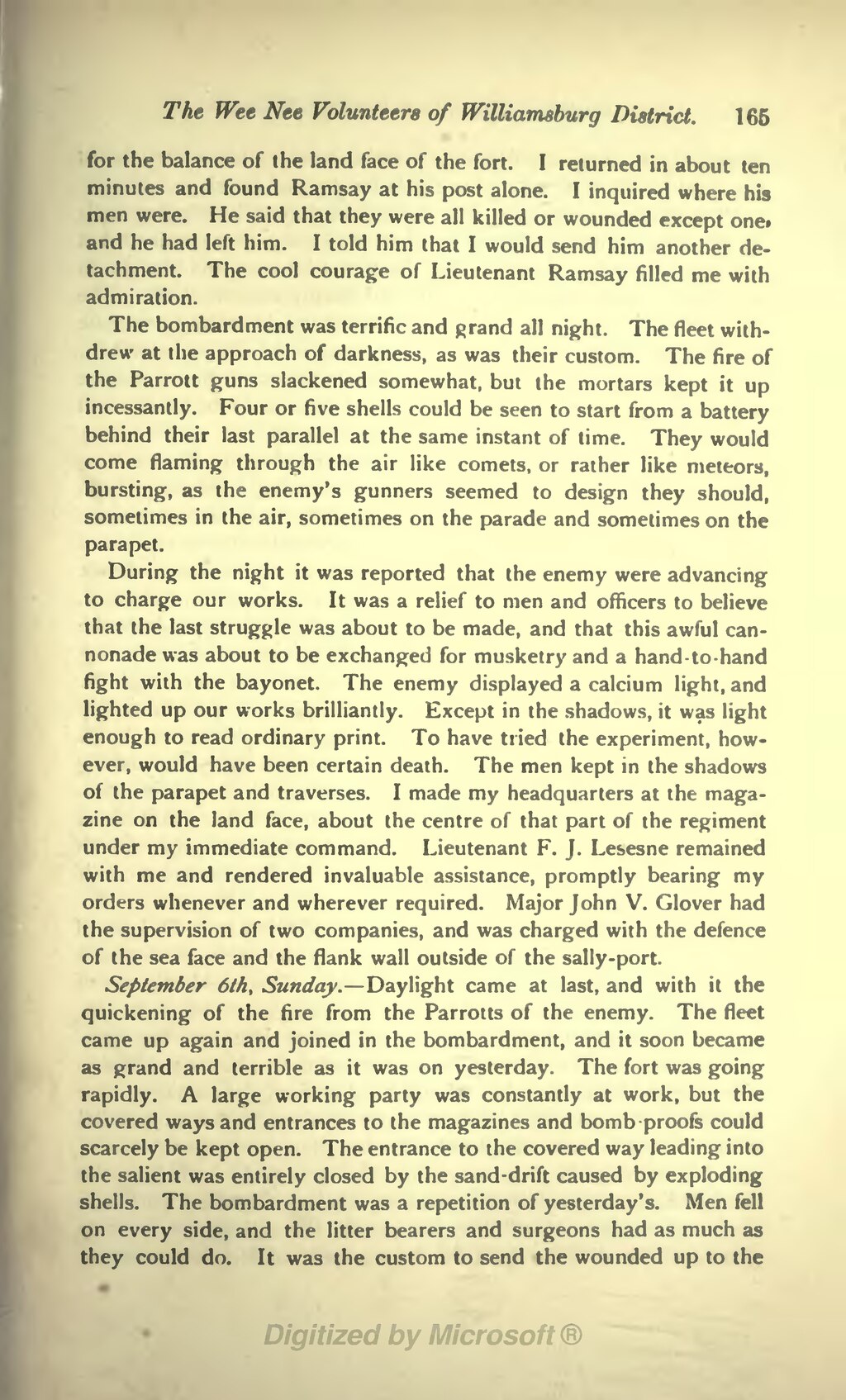The Wee Nee Volunteers of Williamsburg District. 1 65
for the balance of (he land face of the fort. I returned in about ten minutes and found Ramsay at his post alone. I inquired where his men were. He said that they were all killed or wounded except one and he had left him. I told him that I would send him another de- tachment. The cool courage of Lieutenant Ramsay filled me with admiration.
The bombardment was terrific and grand all night. The fleet with- drew at the approach of darkness, as was their custom. The fire of the Parrott guns slackened somewhat, but the mortars kept it up incessantly. Four or five shells could be seen to start from a battery behind their last parallel at the same instant of time. They would come flaming through the air like comets, or rather like meteors, bursting, as the enemy's gunners seemed to design they should, sometimes in the air, sometimes on the parade and sometimes on the parapet.
During the night it was reported that the enemy were advancing to charge our works. It was a relief to men and officers to believe that the last struggle was about to be made, and that this awful can- nonade was about to be exchanged for musketry and a hand-to-hand fight with the bayonet. The enemy displayed a calcium light, and lighted up our works brilliantly. Except in the shadows, it was light enough to read ordinary print. To have tried the experiment, how- ever, would have been certain death. The men kept in the shadows of the parapet and traverses. I made my headquarters at the maga- zine on the land face, about the centre of that part of the regiment under my immediate command. Lieutenant F. J. Lesesne remained with me and rendered invaluable assistance, promptly bearing my orders whenever and wherever required. Major John V. Glover had the supervision of two companies, and was charged with the defence of the sea face and the flank wall outside of the sally-port.
September 6th, Sunday. Daylight came at last, and with it the quickening of the fire from the Parrotts of the enemy. The fleet came up again and joined in the bombardment, and it soon became as grand and terrible as it was on yesterday. The fort was going rapidly. A large working party was constantly at work, but the covered ways and entrances to the magazines and bomb proofs could scarcely be kept open. The entrance to the covered way leading into the salient was entirely closed by the sand-drift caused by exploding shells. The bombardment was a repetition of yesterday's. Men fell on every side, and the litter bearers and surgeons had as much as they could do. It was the custom to send the wounded up to the
